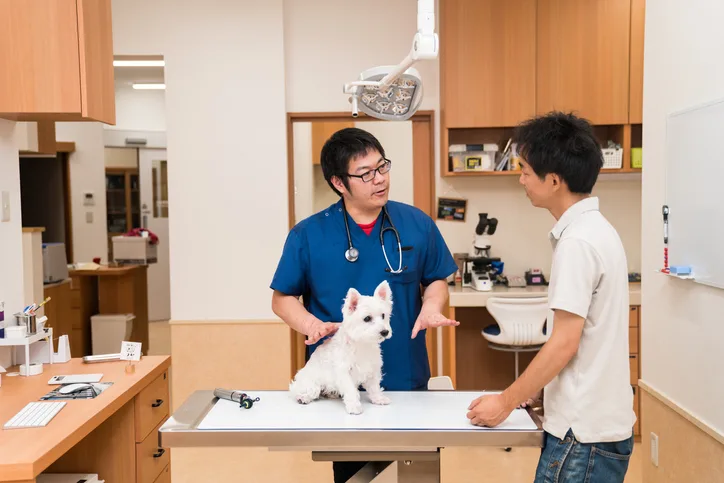
In the Literature
Groves CNH, Janke N, Stroyev A, Tayce JD, Coe JB. Discussion of cost continues to be uncommon in companion animal veterinary practice. J Am Vet Med Assoc. 2022;260(14):1844-1852. doi:10.2460/javma.22.06.0268
The Research …
Cost discussions between clinicians and pet owners occur infrequently and typically focus on cost in relation to time or service rather than the value provided for the patient’s health.1
This study sought to determine the prevalence and nature of cost conversations and identify factors associated with their occurrence. Sixty clinicians and 909 pet owners from 55 clinics were surveyed, and 917 appointments were video recorded. Cost conversations identified in videos were categorized by type of care (eg, diagnostic testing, dentistry, surgery, medication, heartworm medication, diet, vaccinations, recheck appointments), whether the pet owner or clinician initiated the conversation, and type of cost conversation (ie, general reference to cost [eg, discounts, price differences], cost in relation to time or service, cost in relation to medical information that would be obtained, cost in relation to the future health and well-being of the patient).
Findings were consistent with previous study results that indicated clinicians do not often have cost conversations with pet owners, and those who do often focus on the time or service being provided (74%) rather than the future benefit to the patient (14.4%). Estimates were used to prompt conversation in some instances; however, these mostly reviewed the costs, not the benefit, of care.
Cost was more likely to be discussed during illness-focused appointments, during appointments with feline patients (compared with canine patients), and when the pet owner had fewer clinic visits in the prior 12 months. The authors speculated that cost conversations occur more frequently during illness-focused appointments because the benefit to near-term outcome is more evident and that pet owners who have less experience with veterinary care may be less familiar with what is entailed and require more education about associated costs.
Appointments that included cost discussions were longer on average than appointments without these discussions; however, the benefits of pet owner understanding and satisfaction were believed to justify the increased time.
… The Takeaways
Key pearls to put into practice:
Pet owners want to understand the value of the care their pet is receiving.2,3 Not explaining the benefits of services can result in owners questioning clinicians’ motives. Clarification may improve client retention and compliance.
Social pressures can make cost conversations difficult. Using empathy, partnering with pet owners in financial decision-making, and using I wish statements (eg, I wish there was an alternative, but we really have no other safe options) can help facilitate these conversations.
Consistent veterinary staff and clinician training and creation of a plan for cost conversations can improve pet owner satisfaction. New graduates often enter the workplace with training in this area, but senior clinicians should model the clinic’s specific expectations and culture.
You are reading 2-Minute Takeaways, a research summary resource presented by Clinician’s Brief. Clinician’s Brief does not conduct primary research.